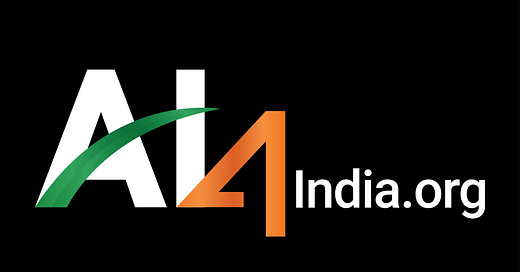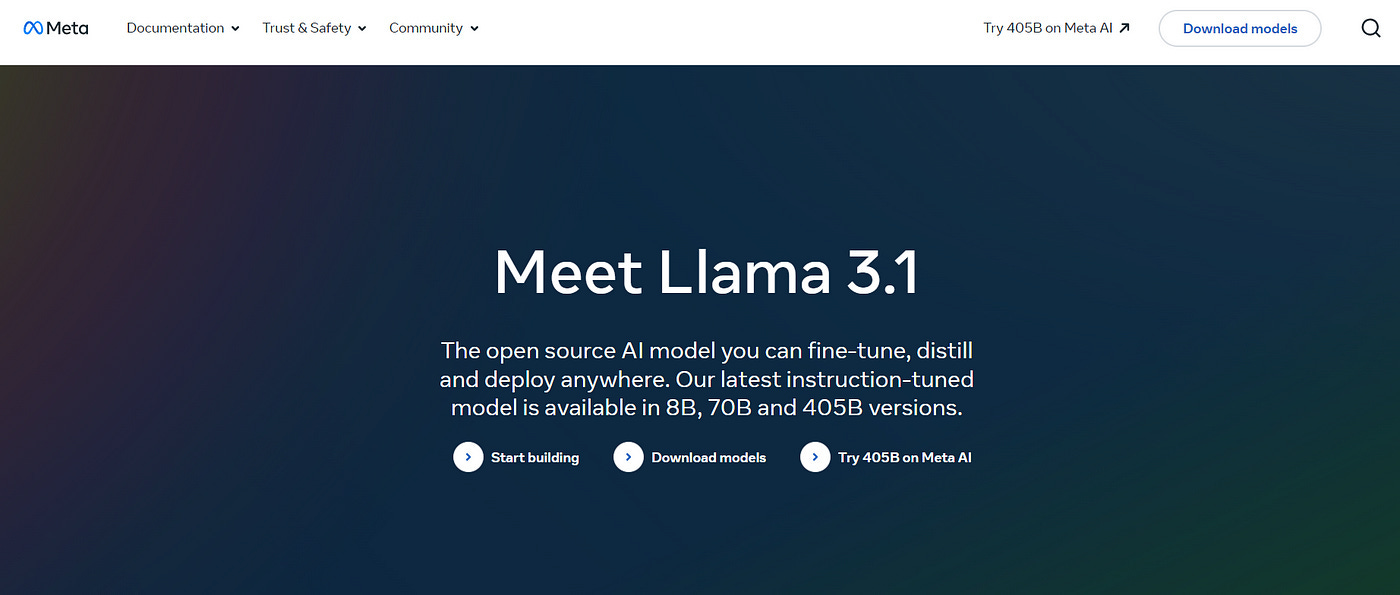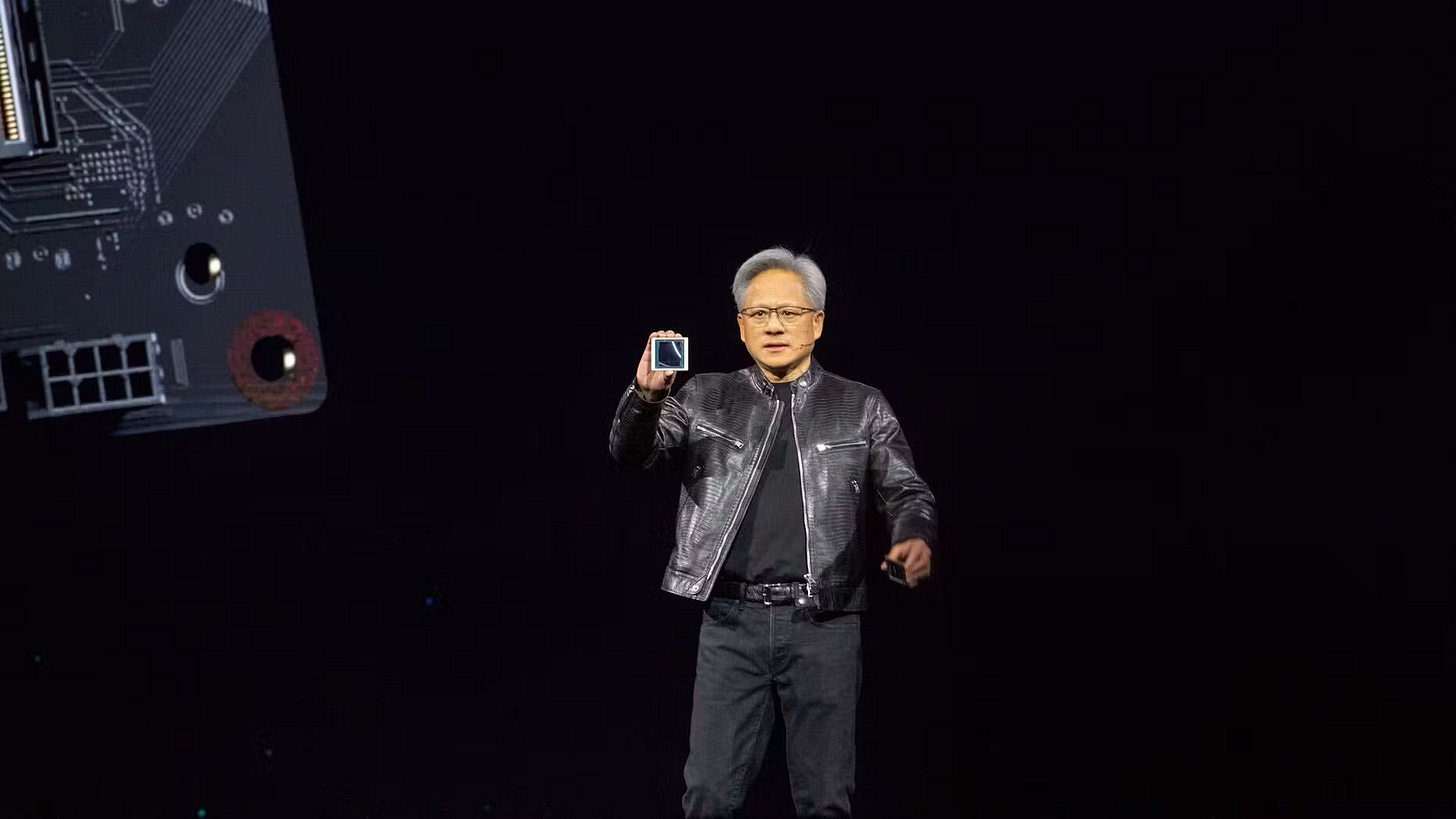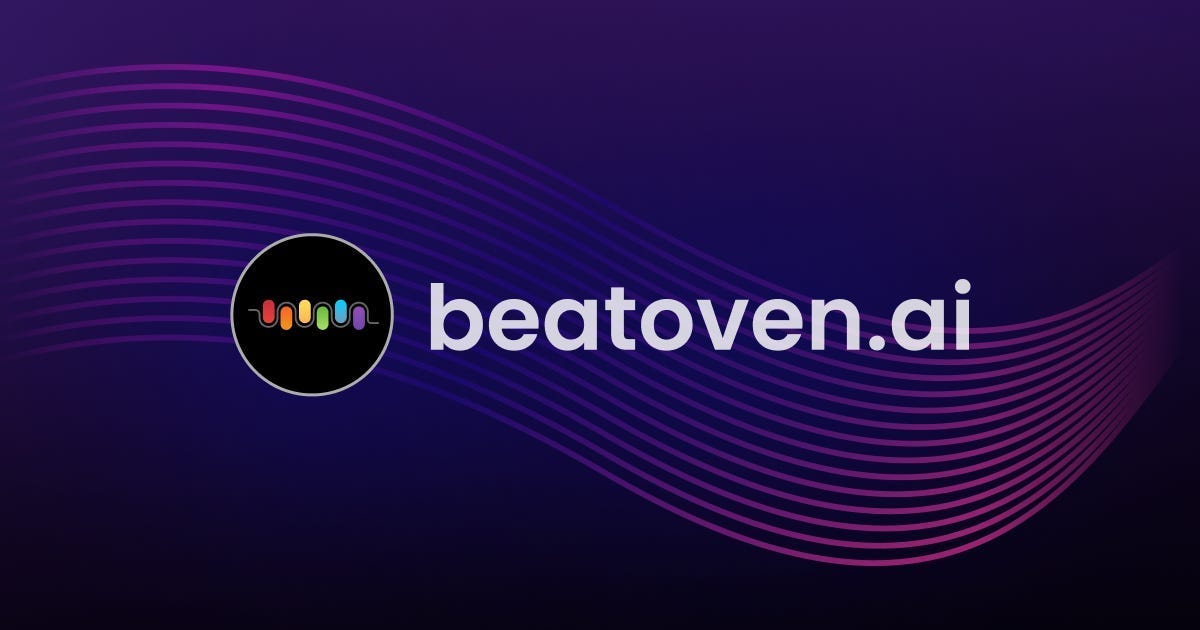The AI4India Weekly: Meta's Llama 3.1, AI Regulations, India's Linguistic Triumphs and More
The AI4India Weekly #12
Greetings to all AI enthusiasts!
In this 12th edition of AI4India Weekly, we dive into the transformative power of AI with Meta's latest release, Llama 3.1, a groundbreaking large language model fostering an open and inclusive AI ecosystem. We also explore India's proactive steps in AI regulation, Prime Minister Modi's praise for AI-driven sustainable textiles, and the hidden costs of AI highlighted by Oxford's Professor Mark Graham. Additionally, we celebrate India's achievements at the International Olympiad of Linguistics and examine the impact of Nvidia's AI chip delay on tech giants.
Read on for in-depth insights and updates on the latest AI advancements and their implications.
Llama 3.1 by Meta : Ushering in a New Era of Open AI
The release of Llama 3.1 by Meta marks a groundbreaking moment in AI. With the introduction of the 405B model, Meta has made a frontier-capability large language model (LLM) available to everyone, fostering an open and inclusive AI ecosystem. Comparable to GPT-4 and Claude 3.5 Sonnet, this openly licensed model supports commercial use, synthetic data generation, distillation, and fine-tuning, democratizing access to advanced AI capabilities.
Llama 3.1's open-source nature aligns with Meta's vision of promoting an open AI ecosystem. As articulated by Mark Zuckerberg in his essay, "Open Source AI is the Path Forward," this philosophy champions collaboration and innovation. Users can prompt, retrieve, and augment the models, fine-tune them for specific tasks, and distill them into specialized models. This modular approach allows various contributors to drive the development of diverse products and services.
The technical capabilities of Llama 3.1 are impressive, with multilingual support, extended context lengths, function calling, and multimodal capabilities. Detailed in a 92-page report by Meta, these features set new benchmarks in LLM performance. Early evaluations show promising results, indicating the model's robustness and versatility. Companies like GroqInc are leveraging Llama 3.1 with new hardware to achieve unprecedented inference speeds, making the 8B model nearly instantaneous.
The model's openness encourages extensive community engagement, with users studying, benchmarking, and optimizing its performance. Meta emphasizes transparency and collaboration, as seen in its blog post detailing the model's architecture, training data, and evaluation metrics. Llama 3.1 is not just about providing access to a powerful model but fostering a community-driven approach to AI development, ensuring AI advancements are shared widely and equitably.
Llama 3.1's architecture excels in diverse applications, from natural language understanding to complex problem-solving. The model's training involved a vast dataset, enhancing its multilingual capabilities and contextual understanding. Extended context lengths allow Llama 3.1 to handle complex queries and provide coherent responses. Function calling enables seamless integration with various applications, and multimodal capabilities allow the model to process and generate text, images, and audio.
Community and Industry Impact
The open release of Llama 3.1 is set to revolutionize AI model development and utilization. By providing access to a high-capability model with permissive licensing, Meta encourages a collaborative approach to AI development, likely leading to rapid advancements in AI research. Integration with cutting-edge hardware, such as the new chip developed by GroqInc, demonstrates potential for significant performance improvements.
Meta's detailed documentation and willingness to share the model's architecture, training data, and evaluation metrics foster trust within the AI community and accelerate innovation. As Llama 3.1 gains traction, other AI industry players will likely respond with their advancements, driving further innovation and improvements. By championing openness and collaboration, Meta is paving the way for a future where AI advancements are accessible to all, driving progress across industries and benefiting society as a whole. The release of Llama 3.1 is a significant leap forward for the entire AI community.
India Forms Advisory Group to Shape AI Regulatory Framework
The Indian government has established an advisory group to develop a comprehensive AI regulatory framework, balancing innovation with necessary safeguards. Minister of State for Electronics and Information Technology Jitin Prasada informed Parliament about this initiative to ensure ethical use and prevent misuse of AI.
The group will promote AI technologies to drive economic growth and enhance public services, develop guidelines for bias and transparency in AI algorithms, and implement measures to curb misuse, such as deepfakes and misinformation. The regulations will be tailored to India's unique socio-economic landscape, protecting citizens from potential AI-related harms.
Including stakeholders from academia, industry, government, and civil society, the advisory group aims to create an inclusive regulatory framework. Parallel government initiatives like Pradhan Mantri Kaushal Vikas Yojana (PMKVY) and FutureSkills Prime are training thousands in AI-related courses.
Collaborations with major tech companies, such as Google and Infosys, support AI goals. The group will address deepfakes and misinformation, emphasizing transparency and accountability in AI technologies. This step underscores India's commitment to a robust and ethical AI ecosystem, positioning the country as a global leader in AI innovation while safeguarding societal interests.
AI Empowering Handloom and Sustainable Textiles - PM Modi Praises Initiative on Mann Ki Baat
In the latest "Mann Ki Baat," Prime Minister Narendra Modi praised Bengaluru-based startup KOSHA.ai for its AI-driven innovations in the handloom and sustainable textile sectors. Using AI and IoT, KOSHA.ai ensures the authenticity and quality of handloom products, supporting artisans and promoting eco-friendly practices. Their technology differentiates handloom from powerloom products, enhancing sustainability by reducing energy and water usage. This recognition underscores the transformative potential of integrating modern technology with traditional industries.
The Hidden Cost of AI: Insights from Professor Mark Graham
In a recent conversation with Professor Mark Graham from the University of Oxford, the hidden costs of AI were brought to light. Professor Graham emphasizes that while AI promises efficiency and innovation, it also incurs significant economic, environmental, and social costs. The creation and maintenance of AI systems demand substantial energy, contributing to environmental degradation. Additionally, the economic benefits of AI often concentrate in the hands of a few, exacerbating inequality. Professor Graham calls for a more equitable and sustainable approach to AI development and deployment.
These insights highlight the need for a balanced perspective on AI advancements, considering both their potential and their drawbacks. As AI continues to integrate into various sectors, it's crucial to address these hidden costs to ensure a more inclusive and sustainable future. This conversation serves as a reminder that while AI holds transformative potential, it also requires careful management to mitigate its broader impacts.
India's Journey Towards AI Hardware Leadership
India is positioning itself as a significant player in the AI hardware sector, moving beyond software to develop its own semiconductor and AI chip manufacturing capabilities. This strategic shift is driven by the need for self-reliance and the potential to revolutionize various industries, from healthcare to automotive. Government initiatives, partnerships with global tech firms, and a focus on research and development are key components of this ambitious plan. The nation's progress in AI hardware could set the stage for substantial economic and technological advancements.
Indian National Team Shines at International Olympiad of Linguistics
The Indian national team recently participated in the International Olympiad of Linguistics (IOL) held in Brazil, showcasing their exceptional skills in linguistic problem-solving. Competing against top linguistic minds from around the world, the Indian team secured impressive individual accolades, with one silver and two bronze medals.
The silver medal was awarded for outstanding analytical abilities and deep understanding of complex linguistic patterns. The bronze medals were a testament to the team's dedication and expertise, with a particularly inspiring achievement by the youngest team member, a 14-year-old girl, who demonstrated remarkable proficiency and determination.
Despite not winning any team medals, the Indian team's performance at the IOL highlights the country's growing prowess in the field of linguistics. Their success at the event reflects India's commitment to nurturing young talent and promoting excellence in diverse academic disciplines.
Nvidia AI Chip Delay Affects Major Tech Giants
Nvidia's highly anticipated Blackwell AI chip series, initially set for a late 2024 release, is facing delays due to design flaws. The delay, potentially pushing the launch back by three months or more, could significantly impact major customers such as Microsoft, Google, and Meta. These companies have collectively ordered billions of dollars worth of the new chips to power their AI-driven applications and services.
The delay stems from issues discovered during the final stages of the design process. Nvidia had begun sampling the Blackwell chips, but the flaws necessitate further refinement before mass production can begin. This setback is particularly critical for Nvidia, given the high stakes involved—each AI Superchip costs up to $70,000, with complete server racks reaching prices of $3 million or more.
Beatoven.ai: Revolutionizing Music Creation with AI Innovation
India's Beatoven.ai is making waves in the world of AI-generated music, showcasing the potential and creativity that artificial intelligence can bring to the music industry. Founded by Siddharth Bhatia and Mayur Jumani, Beatoven.ai leverages advanced machine learning algorithms to compose unique music tracks tailored to various moods, genres, and themes. By analyzing user preferences and incorporating them into its compositions, Beatoven.ai ensures that each piece of music resonates with its intended audience, demonstrating a perfect blend of technology and artistic expression.
What sets Beatoven.ai apart is its focus on accessibility and user experience. The platform is designed to cater to a wide range of users, from amateur content creators to professional musicians, providing an intuitive interface that simplifies the music creation process. Users can easily customize their tracks, adjusting elements like tempo, instrumentation, and mood to fit their specific needs. This democratization of music creation not only empowers more individuals to express themselves creatively but also positions Beatoven.ai as a leader in the AI music generation space, setting a high standard for innovation and quality in the industry.
NOTE : The views expressed by the authors are their own. AI4India as a forum does not endorse any comments on specific brands, products, platforms or companies.
Join our AI4India.org forum to be a part of the AI revolution in India by visiting our site now.
Follow us on our X and LinkedIn to receive interesting updates and analysis of AI-related news













